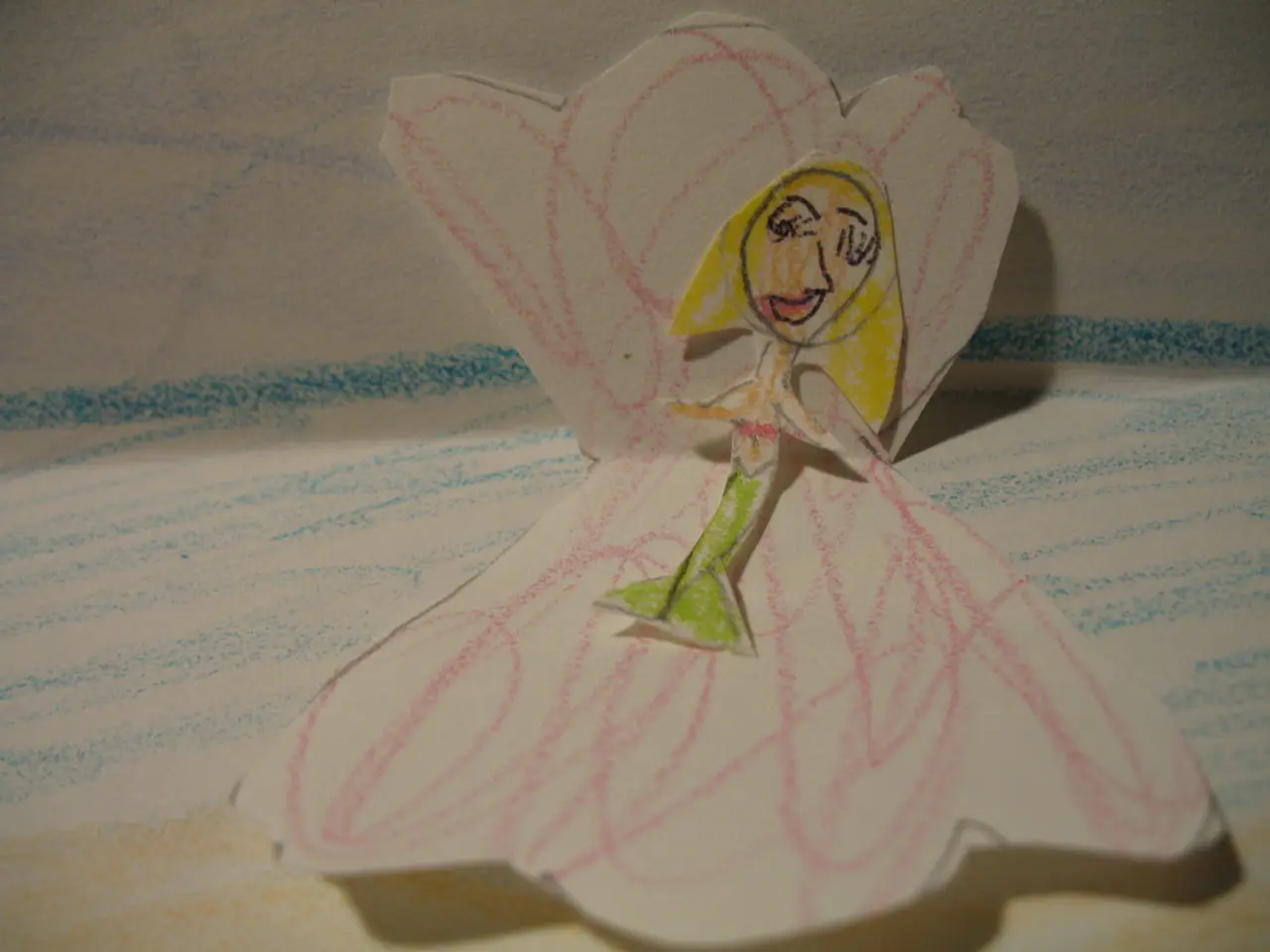Return to Northern Ireland: Revitalizing Creative Sectors with Location-Specific Employment Initiatives
In a significant move to support the arts, culture, and heritage sectors, Future Screens NI (FSNI) has been awarded £4.7 million by the Department for Communities (DfC) to establish the Art Work scheme in Northern Ireland. This funding initiative aims to create 72 three-year posts in arts organisations, with a particular focus on inclusivity, including D/deaf, disabled, and neurodiverse artists.
The Art Work scheme is the result of a strategic partnership between FSNI, the World Building Institute, and key policy decision-makers. This collaboration seeks to develop a cohesive strategy to support artistic innovation and inclusivity, backed by National Lottery funds. The partnership reflects a commitment to integrating cultural policies with economic and social inclusion goals, aligning with Northern Ireland’s broader strategic priorities for culture as a driver of equality and change.
Professor Paul Moore, the Director of Future Screens NI and Co-Director of Ulster University's Creative Industries Institute, has been instrumental in driving this initiative. During the development phase, key policy decision-makers, including Minister for Communities Deirdre Hargey, were presented with the ways in which the scheme addresses issues of community support and levelling up.
The genesis of the Art Work scheme was an analysis of job creation in the creative industries undertaken by Professor Alex McDowell and his team at the World Building Institute. The centrality of the concept of 'place' has become a consistent theme across all the clusters, including in the annual cluster reports. This scheme is a testament to this focus, as it seeks to empower artists with disabilities and neurodivergence and foster new digital and creative projects in the region.
The Art Work scheme is not the only initiative that FSNI is involved in. The organisation is also tasked with developing R&D, advancing Gross Value Added (GVA) for the creative industries sector, and creating jobs as part of the Creative Industries Clusters Programme. FSNI will be working in partnership with others to advance a collaborative model for policy development during the remainder of the life of the cluster.
The vibrancy of the Northern Ireland creative sector is attracting significant interest, with established artists and creatives opting to return from major cities such as London and New York. The recent sighting of Belfast as being amongst the top five cities in the UK for technology and creativity further reinforces the region's potential to contribute to policy development in the coming period.
However, challenges remain. The sector's sustainability is believed to be dependent on the creative industries being seen as vital to the success of other industries, such as medicine, heavy engineering, or security. Furthermore, Professor Dave O'Brien, along with others, studies class inequalities in film funding, and Professor Nick Wilson discusses the Equity Gap in Britain's Creative Industries. These issues are being addressed through ongoing research and policy development.
The pandemic has also presented opportunities for rethinking how clusters might support the sector. The halted Story Engine project offered a chance to create stronger links with Arts Council NI and the development of the Art Work programme. As Northern Ireland moves forward, the Art Work scheme represents a strategic partnership leveraging expertise from arts innovation organisations and policy leaders to enhance funding access for marginalised artists and catalyse the creative economy in the region.
- The Art Work scheme, funded by the Department for Communities, aims to foster artistic innovation and inclusivity through the creation of 72 three-year posts in arts organisations.
- Future Screens NI (FSNI), in collaboration with the World Building Institute and policy decision-makers, is developing a strategy to support this scheme with National Lottery funds.
- This strategy aligns with Northern Ireland’s broader priorities, positioning culture as a driver of equality and change.
- The genesis of the Art Work scheme was an analysis of job creation in the creative industries, led by Professor Alex McDowell and his team at the World Building Institute.
- The scheme focuses on empowering artists with disabilities and neurodivergence, and fostering new digital and creative projects in the region.
- Beyond the Art Work scheme, FSNI is also involved in R&D, advancing GVA for the creative industries sector, and creating jobs as part of the Creative Industries Clusters Programme.
- The vibrancy of the Northern Ireland creative sector is attracting interest, with established artists returning from cities like London and New York.
- However, the sector's sustainability is dependent upon the creative industries being seen as vital to the success of other industries like medicine, heavy engineering, or security.
- Ongoing research and policy development are being employed to address issues like class inequalities in film funding and the Equity Gap in Britain's Creative Industries.
- The pandemic has offered opportunities for rethinking how clusters might support the sector, creating stronger links with Arts Council NI and the development of the Art Work programme.
- As Northern Ireland moves forward, the Art Work scheme represents a strategic partnership leveraging expertise from arts innovation organisations and policy leaders to enhance funding access for marginalised artists and catalyse the creative economy in the region. This partnership also includes education-and-self-development, career-development, policy-and-legislation, politics, and general-news.




